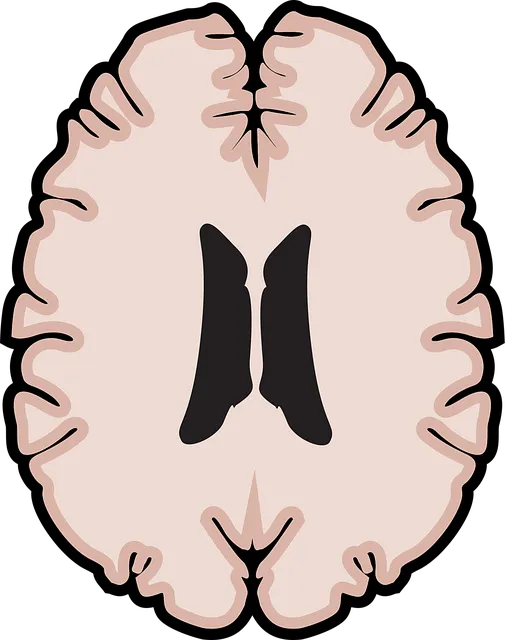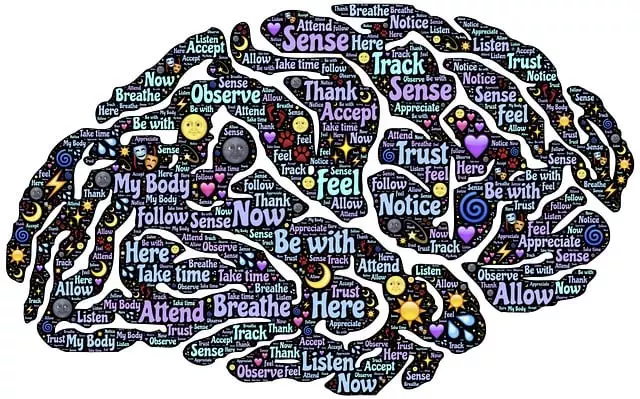Kaiser Wheat Ridge's community outreach programs bridge mental health access gaps through empathy building, journaling exercises, and Mind Over Matter principles. Their strategies target unique needs, empower individuals, dispel stigma, and integrate services into daily life. Strong partnerships with local organizations expand reach, enhance well-being, and ensure program sustainability. Culturally sensitive messaging, multilingual resources, and tailored workshops cater to diverse communities. Metrics like crisis access, participant satisfaction, and mental health outcomes measure success and guide future strategies.
Community outreach programs play a vital role in ensuring access to mental health services, especially for underserved populations. This article explores the comprehensive implementation of such initiatives by Kaiser Wheat Ridge, focusing on understanding community needs, strategic partnerships, and tailored program design. Discover how these approaches enhance service delivery and improve mental well-being across diverse communities. Learn practical insights on how to get mental health services through Kaiser Wheat Ridge’s proven outreach strategies.
- Understanding Community Needs for Mental Health Services
- Kaiser Wheat Ridge's Role in Outreach Strategies
- Developing Effective Partnerships for Service Delivery
- Tailoring Programs to Different Communities
- Measuring Success and Impact of Outreach Initiatives
Understanding Community Needs for Mental Health Services

Understanding the unique needs of a community is paramount when implementing outreach programs for mental health services. Community members may face barriers such as stigma, lack of awareness, or limited access to resources. To effectively reach those in need, it’s crucial to employ Empathy Building Strategies that foster trust and understanding. Engaging with the community through Mental Wellness Journaling Exercises can provide insights into prevalent concerns and challenges, ensuring services are tailored to real needs.
Kaiser Wheat Ridge, for instance, has successfully integrated these strategies by offering guidance on Mind Over Matter principles, empowering individuals to take charge of their mental wellness. By listening to the community’s stories and perspectives, organizations like Kaiser can dispel myths, reduce stigma, and facilitate open conversations about mental health—ultimately ensuring that services are accessible, relevant, and impactful for all who need them.
Kaiser Wheat Ridge's Role in Outreach Strategies

Kaiser Wheat Ridge has emerged as a pioneer in community outreach strategies, significantly contributing to how to get mental health services accessible to all. Their approach focuses on fostering connections and promoting well-being within the community, addressing a crucial aspect of healthcare often overlooked. Through various initiatives, the organization aims to bridge the gap between individuals seeking support for their mental health and the services they need.
One notable strategy is incorporating mindfulness meditation programs into their outreach efforts. By teaching emotional regulation techniques, Kaiser Wheat Ridge empowers individuals to manage stress and prevent burnout, particularly relevant in the healthcare sector. Additionally, their outreach workers actively engage with local communities, providing valuable resources and educating people about available support systems. These strategies not only enhance overall well-being but also ensure that mental health services are not just accessible but also integrated into the fabric of community life.
Developing Effective Partnerships for Service Delivery

Building strong partnerships is key to successfully implementing community outreach programs, especially when focusing on delivering mental health services like those offered by Kaiser Wheat Ridge. Effective collaboration ensures that resources and expertise are maximized to reach a wider audience. One strategy involves partnering with local organizations, such as community centers or faith-based groups, which can facilitate access to hard-to-reach populations. These partnerships enable shared knowledge and skills, allowing for more comprehensive service delivery.
By fostering collaborations, community outreach programs can integrate Inner Strength Development and Self-Care Practices, enhancing the overall well-being of participants. Encouraging Emotional Intelligence is another benefit; understanding and managing emotions effectively empowers individuals to navigate life’s challenges. Such partnerships also promote sustainability, as they create a network of support that extends beyond the initial program duration.
Tailoring Programs to Different Communities

When implementing community outreach programs, especially those focused on mental health services like Kaiser Wheat Ridge’s initiatives, it’s crucial to tailor offerings to meet the unique needs of different communities. Not all populations have equal access to healthcare, and cultural, socio-economic, and linguistic barriers can significantly impact how individuals seek and receive support. Therefore, a successful outreach program must be flexible and sensitive to these variations.
For instance, developing public awareness campaigns that resonate with various demographics is essential. This might involve creating targeted messaging for at-risk youth, providing educational resources in multiple languages for immigrant communities, or offering coping skills development workshops designed to address specific stressors faced by marginalized groups. Additionally, risk assessment tools for mental health professionals should be culturally competent, ensuring accurate identification of issues within diverse community contexts.
Measuring Success and Impact of Outreach Initiatives

Measuring the success and impact of community outreach initiatives, such as those designed to improve access to mental health services through Kaiser Wheat Ridge, is crucial for understanding their long-term effectiveness. By tracking key performance indicators (KPIs), organizations can gauge whether their programs are achieving their intended goals. These metrics might include the number of individuals reached, the level of satisfaction among participants, and changes in mental health outcomes over time. For instance, evaluating how many people in crisis now have access to immediate support through initiatives like Crisis Intervention Guidance could provide a clear indicator of success.
Additionally, assessing the broader impact of these programs is essential. Compassion cultivation practices and Mental Health Education Programs Design, for example, can foster community resilience and reduce stigma associated with mental health issues. Measuring improvements in community well-being, such as enhanced social connectedness or increased awareness about available resources, offers a holistic view of outreach initiatives’ contributions to public health. This data not only helps refine existing programs but also guides future strategies aimed at promoting mental wellness within the community.
Implementing community outreach programs, as demonstrated by Kaiser Wheat Ridge’s initiatives, offers a strategic approach to addressing diverse mental health needs. By understanding local requirements, forming strong partnerships, and customizing programs, organizations like Kaiser can effectively bridge the gap between communities and accessible mental health services. Through measured success and impact assessments, these initiatives ensure that resources are directed where they are most needed, ultimately enhancing overall community well-being. For those seeking mental health support, this means increased accessibility and improved opportunities to connect with vital resources through programs like those offered by Kaiser Wheat Ridge.






